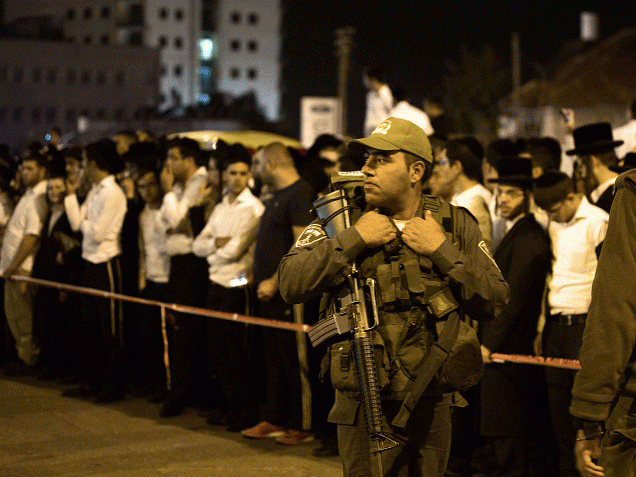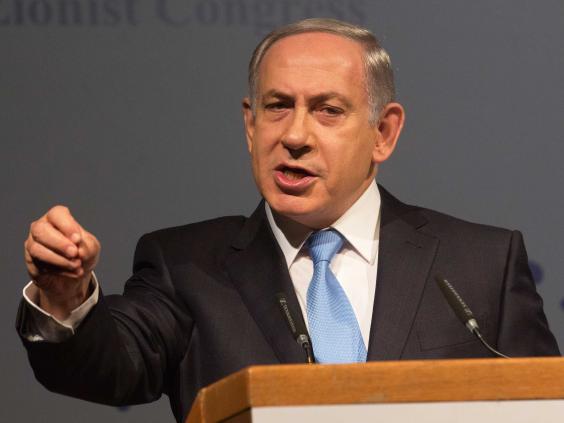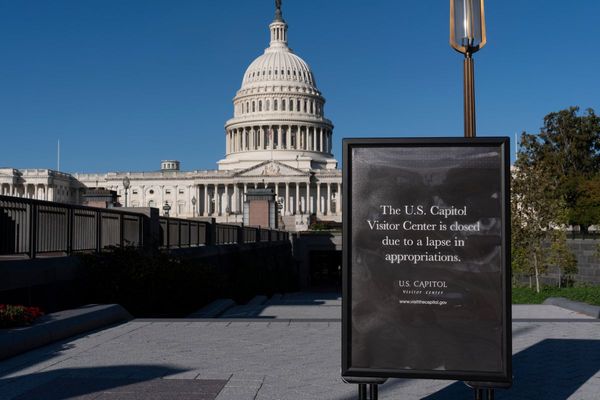
Israeli soldiers killed a Jewish man they believed to be terrorist, the day before two Arab attackers were shot by police for stabbing an Israeli, as a month-long wave of violence in Jerusalem continues.
Israeli police said soldiers shot dead the Jewish man on Wednesday after he had attacked them, according to the Associated Press.
Mickey Rosenfeld, a police spokesman, said the soldiers had asked the main for his ID, but he refused to produce it and instead attempted to snatch a soldier’s weapon. The soldiers then opened fire.
Mr Rosenfeld said the man’s ID showed him to be Jewish.
The incident was followed the next day by the killing of two Arab attackers, who Israeli police said they shot as the men had stabbed an Israeli man, injuring him.
Weeks of violence has gripped the region and seen 10 Israelis killed in stabbing attacks and 47 Palestinians or Arab citizens killed, including 26 identified by Israel as attackers.
Earlier in the week, a 65-year-old Palestinian woman is reported to have died after roadblocks put in place by Israeli police in east Jerusalem, and a wait a checkpoint, severely delayed her journey to hospital.
According to Human Rights Watch, Israeli police had sealed the roads leading from where the woman lived to the nearest hospital – turning what should have been a six-minute journey into one lasting 45 minutes.
Roadblocks were set up by Israeli police last week following stabbings and shootings of Israeli citizens and security forces.
“The delay in Hoda Darwish reaching the hospital raises questions about the checkpoint and road closure regime that Israel is establishing in East Jerusalem,” said Sari Bashi, Israel/Palestine director at Human Rights Watch.
“Israeli police face tough public safety challenges, but people with medical emergencies need to be able to access care quickly.”
The woman had reportedly complained of breathing problems after a teargas canister exploded near her home.
Human Rights Watch said the incident raised concerns that travel restrictions in place in Jerusalem may be violating people’s right to health and freedom of movement.
It said the Israeli authorities had sealed off roads leading from 10 Palestinian neighbourhoods in East Jerusalem, but no roads leading out of Israeli settlements.
Ms Bashi added: “Security measures to protect against attacks should be proportional. Israel should take care to ensure that any restrictions do not prevent timely access to health services.”
Amid the continued violence, Israeli Prime Minister Benjamin Netanyahu came under fire after telling the 37th World Zionist Congress that he was convinced a Muslim leader had told Adolf Hitler to exterminate Europe’s Jews.
Mr Netanyahu said Haj Amin al-Husseini, the Grand Mufti of Jerusalem, had discussed the issue with the Nazi leader when they had met in November 1941.
“Hitler didn’t want to exterminate the Jews at the time, he wanted to expel the Jew. And Haj Amin al-Husseini went to Hitler and said ‘If you expel them, they’ll come here (to Palestine)’.”
According to Mr Netanyahu, Hitler then asked: “What should I do with them?”. To which the Mufti replied: “Burn them.”
His comments have been condemned by Israeli historians and the country’s politicians, and prompted Germany’s Chancellor Angela Merkel to reiterate that Germans were “very clear in our minds” that the Nazis were responsible for the Holocaust.








